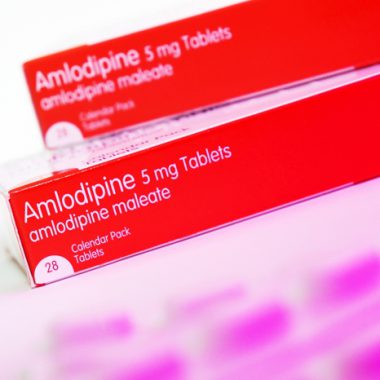NHS England has published new guidelines on ‘responsibility for prescribing between primary and secondary/tertiary care’. Dr Andrew Green, GPC prescribing and clinical policy lead, explains what the guidance means for GPs.
What is the new guidance?
The guidance has been developed as part of the GPC’s Urgent Prescription for General Practice. It is designed to ensure that patients experience seamless care as they pass between sections of the health service, and that they receive their prescriptions from the most appropriate prescriber. It ensures patients are involved in and understand the process.
By clearly defining the respective roles and responsibilities of primary and secondary care it should prevent the inappropriate transfers of prescribing that GPs have often encountered.
Most importantly, by ensuring all parties agree prior to any transfer of responsibility from hospital to GP, it will ensure that no patient finds themselves caught in the middle without access to the drugs that they need.
What should happen when a patient is transferred?
Before the transfer of responsibility of prescribing takes place from secondary to primary care, the patient’s condition must be stable or predictable. Primary care must consent to take on that responsibility and training and resources need to be in place.
The patient needs to understand who is responsible for providing prescriptions and carrying out monitoring.
Until these conditions are met, prescribing must remain with the recommending clinician.
Who is responsible for ensuring local prescribing arrangements are clear?
We already have very good examples of shared care arrangements around the country, agreed between CCGs, LMCs, and Area Prescribing committees. Unfortunately, some areas have not prioritised this work, and they must now do so without delay.
Who is legally responsible for the prescriptions?
The clinician signing the prescription is always responsible for its appropriate use and for ensuring that monitoring systems are in place, whether or not the treatment is being initiated in primary care or on the advice of another clinician. This is the reason why it is vital that GPs only prescribe within their clinical competence.
What if the GP is not familiar with the medicines prescribed?
If it is the GP’s opinion that they cannot prescribe safely, they should inform the recommending doctor that they cannot accept the proposed transfer of care. It would then be reasonable to have discussions between secondary care, commissioners and the LMC to see if there are training or resource barriers preventing safe primary care prescribing.
If these cannot be met, if the activity is not covered by the GP’s contract, or if the drug is not suitable for primary care prescribing at all, then prescribing must remain with the recommending clinician.
Patients must not be told to collect prescriptions from their GP until agreement for this has been obtained, and hospitals will need to review their procedures to facilitate distance prescribing, for example by engaging with EPS.
How long should a hospital supply of medicines last?
As a minimum, seven days, or until a communication can be provided to enable safe ongoing prescribing. Anything arising from an outpatient appointment that is needed urgently should always be provided by the hospital.
What about patients who have been seen at emergency departments?
The requirements about prescribing and consultant-to-consultant referrals apply to emergency departments just as they do to other parts of the hospital.
What if the patient is at risk of self-harm, or might misuse the medicine?
If you are concerned that a patient might self-harm or misuse a medication you will need to put yourself in a position to make a judgement about this risk before prescribing. If you are unhappy to do so, then responsibility to prescribe remains with the recommending clinician.
How does this new guidance affect shared care agreements?
It should help to spread best practice by ensuring agreement and resourcing. An important change is that this covers those cases where patients are discharged from hospital, but remain on newly recommended medication within primary care. Hospitals cannot wash their hands of such patients, but must provide a rapid route for clinical advice should problems arise, and that should be provided without the requirement for a new referral.
What about changes to medication upon discharge after acute admission – for example, if pre-admission medication has been stopped? If there are areas requiring clarification, whose job should it be to sort it out?
Good quality discharge summaries should contain a list of newly prescribed medication, altered medication, and unchanged medication. It is essential that practices have procedures in place to ensure that these changes are incorporated into ongoing repeat prescriptions.
Often instructions to change medications after an outpatient appointment are poorly communicated. For example, ‘doubling of the dose’ can mean the patient being given – or told to expect – twice the same strength or a new dose-strength without this being specified. How can we minimise the risk of errors when altering the repeat template?
All prescriptions should be written clearly, avoiding such phrases as ‘as directed’ wherever possible. The GPC believes that pharmacists working within practices have an essential role in minimising safety risks in situations like this, and all the countries in the UK should follow the example of Northern Ireland in providing all patients with the services of a GP-based pharmacist.
What if our hospital is not complying with this guidance, for example we receive requests for medication immediately after discharge?
This document has been produced by NHS England with backing from the GPC and RCGP, as well as NHS Clinical Commissioners, the RCN and patient groups. It places good prescribing and patient safety at the heart of its requirements. If any problems emerge locally, GPs’ first port of call should be their LMC.
Dr Andrew Green is a GP in East Yorkshire and GPC clinical and prescribing policy lead. The new guidance is available on the NHS England website.
Pulse July survey
Take our July 2025 survey to potentially win £1.000 worth of tokens















